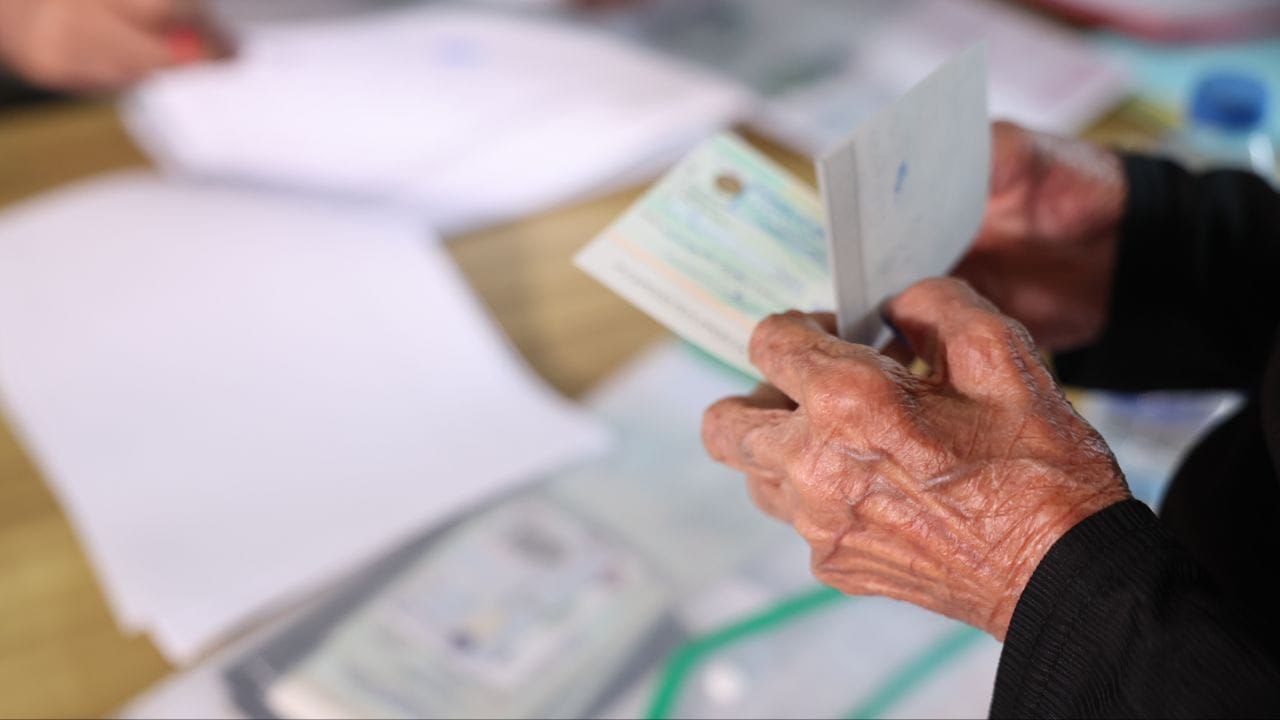The first center for issuing national cards was opened in a camp for displaced persons in Duhok Northern Province, issuing 100 national cards per day, providing facilities for the displaced.
Before opening the center, the Internally Displaced Persons IDPs were forced to travel long distances to Shingal (Sinjar) district, home for the non-Muslim Ezidi community, or war-torn Mosul, center of Nineveh province, which took five hours, in addition to the exhaustion, security conditions, and costs that burdened some families.
Pir Dian Jaafar, the Director of the Office of Migration, Displacement, and Crisis Response of the Kurdistan Regional Government KRG, told (KirkukNow), "The displaced often asked for facilities to enable them to issue national cards inside their camps, and after intensive efforts, the first center for issuing national cards was opened in Sharia camp."
“100 national cards are issued daily at this center, although the number is small compared to the number of displaced people, but this is all that can be done at the present time,” Jaafar added. “It is likely that the number will increase in the future.”
The center was opened in the Sharia camp in Dohuk, where the majority of the Ezidi IDPs live, and centers are scheduled to be opened in other camps.
According to the latest statistics from the Ministry of Interior in the regional government, 137,616 IDPs, making up 27,069 families, most of whom are Ezidis, are still residing in the camps of the Kurdistan Region of Iraq KRI, but there is no data on the number of those who have obtained national cards.
Barakat Khalaf, who lives in the Qadiya camp within the borders of Zakho district, was unable to issue national cards for his family members, which includes five children, due to the cost of traveling to Sinjar.
“Opening the center in the Sharia camp is an important step. We were unable to travel to Shingal or Mosul, because I am just a worker and do not have a car. Traveling alone to Sinjar costs me 30,000 dinars.”
Sometimes, IDPs have to travel to their original areas several times to obtain a national card, according to Khalaf.
“We demand that these centers be opened in all camps so that everyone can obtain a national card.”
Last September, a story by KirkukNow highlighted the suffering of IDPs and the difficulties they face in obtaining a national card.
According to the laws in force, the national card replaces both the civil status card and the Iraqi nationality certificate, which have been discontinued, and every Iraqi citizen must obtain this unified card.
Jaafar called on the IDPs not to rush to the national card center teams in Sharia camp so that the process can proceed smoothly.
“We assure them that our teams will not stop working until every IDP obtains a national card.”
The Islamic State of Iraq and the Levant (ISIL) took control of Shingal in August 2014; enslaved 6,417 Ezidis, of whom 2,700 are still missing, killing more than 1,000 accusing them of being heretics, and displacing 360,000, some of whom have not yet returned, according to the KRG’s Bureau for Rescue of Abducted Ezidis.
There are about 550,000 Ezidis in Iraq, over 100,000 of whom have migrated. Those who remain in displacement or majority are located in Sheikhan district (north of Mosul, partly under Duhok and partly on Nineveh) and Shingal district (120 km west of Mosul). and administratively belongs to Nineveh province).





